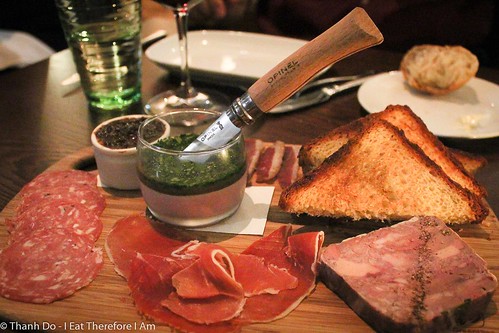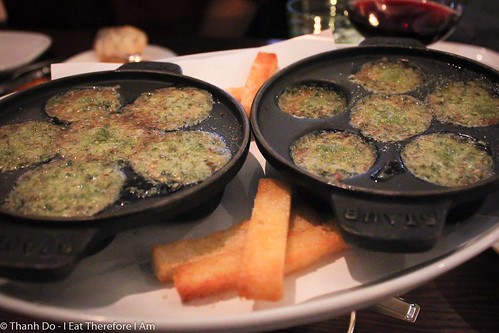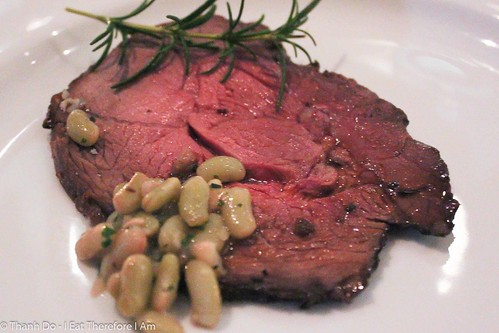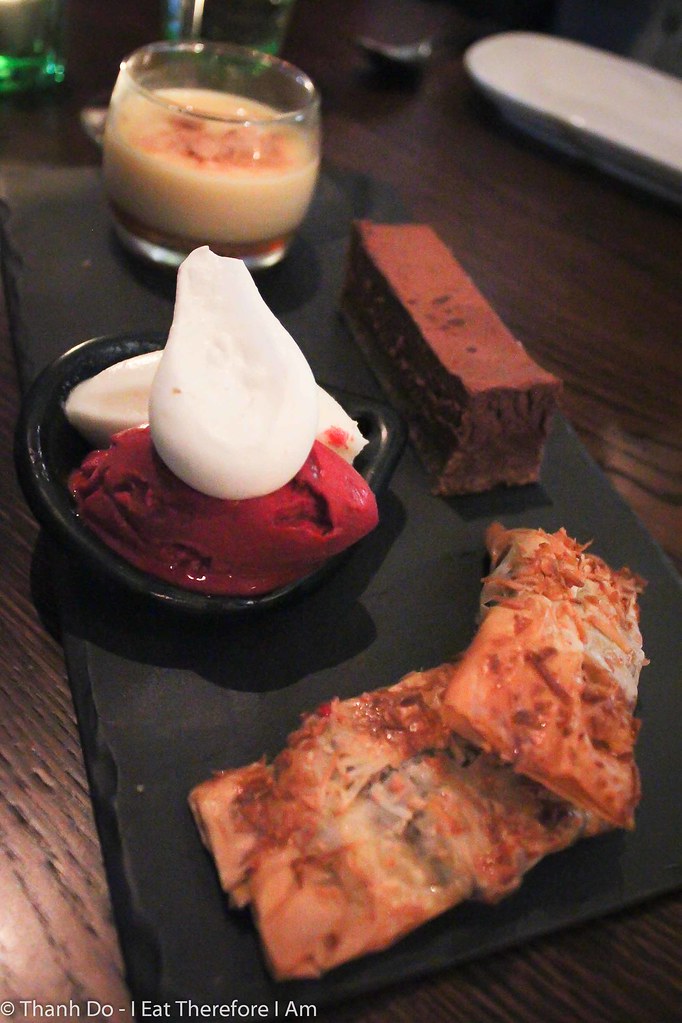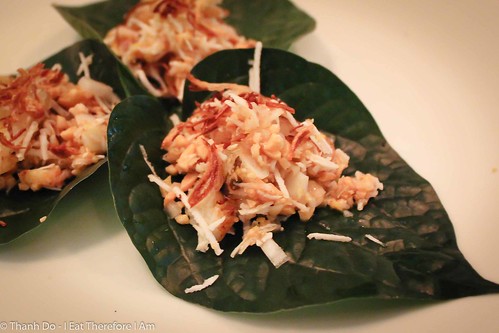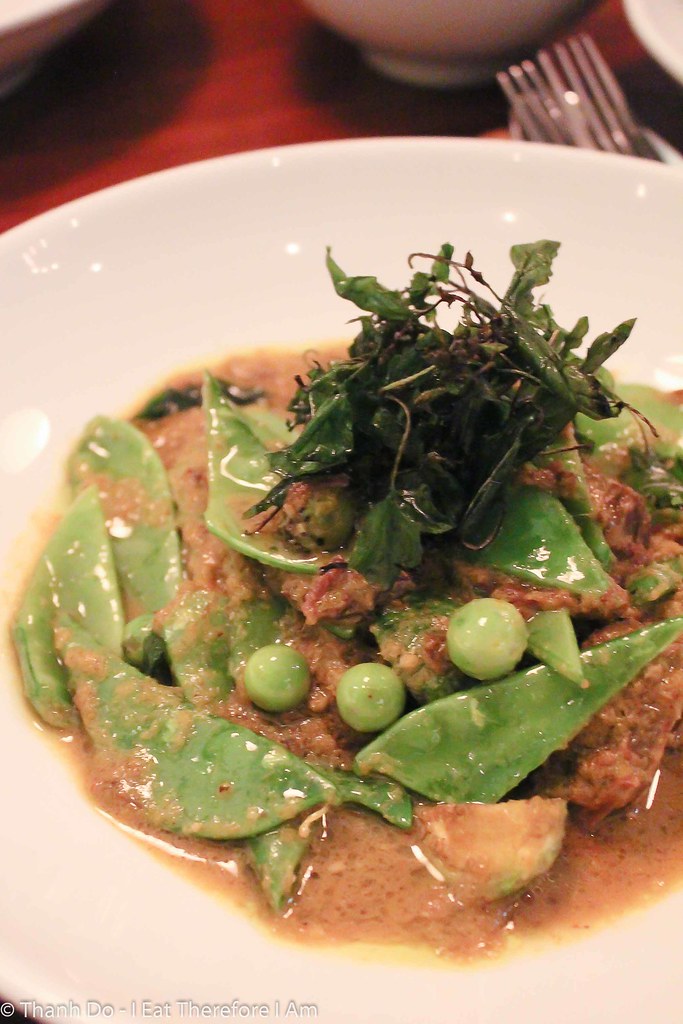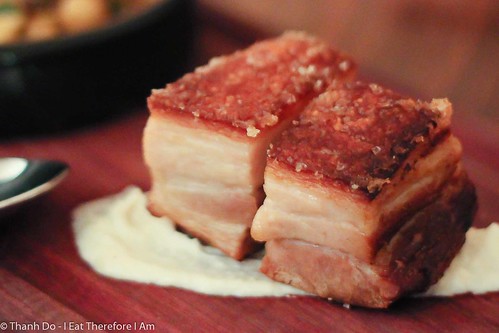I believe that quote came from @theprovenance, a fellow oyster fiend. It made me chuckle.
I absolutely love oysters. I could eat heaps of them, 48 being my record in one sitting. When I first started eating them, I used to eat them steamed, usually covered in black beans, ginger, spring onions and soy. Obviously you can tell that I first ate them at Chinese restaurants. Slowly, I started to try them in other forms, baked cheese, kilpatrick and finally, raw. And I found out that I prefer raw the most, with it's natural "taste of the sea". You can read up about my various oyster flavour combinations here and here.
When I taste raw oysters at restaurants, it always tastes so much better than the ones I buy from fishmongers. It's because restaurants open their oysters on the spot, retaining all the juicy goodness. Who knows how long an oysters sitting on the fishmonger's window shop has been opened for right? And even if you ask them to open on the spot for you, unless you're going to eat them right away, they still dry out when you get them home and the juice spills. I've always wanted to open my own but it looked quite difficult. It wasn't until my Steer Boot Camp experience where I learnt to open oysters that I made up my mind to buy an oyster knife.
Oyster knives aren't oyster knives as they say. There were so many different types. They vary in the blade material, blade length, handle material, handle size, handle length. After much research on various forums, I finally settled on buying the Dexter Russell Oyster Knife. This knife has a plastic handle and a 7cm blade. People were divided over whether to have a flat blade or rounded blade. Both parties claimed their knives worked better. I settled on the rounded blade knife as you can see from the photo below. Also people were divided as to what length is best. Some said the shorter 7cm is better as it works for more types of oysters while some claimed the 10cm gave better leverage. The problem with the longer knife is it's hard to use on small oysters, and that was the deal breaker for me as I love eating a number of varieties that are quite small.
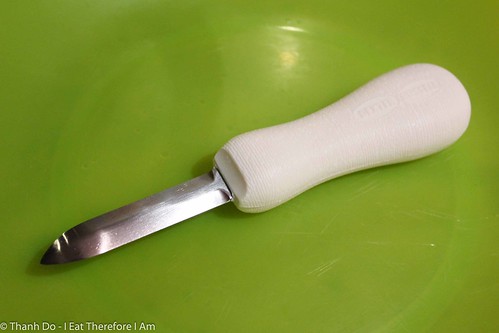
Shucking an oyster is not super easy, but after a dozen or so, you'll get the hang of it and be shucking them quite quickly. As for the question of whether to shuck them from the front of the back, I found the back safer and easier for myself. I tended to miss the front thin lip and the knife go flying towards my fingers. The back is also not without risk so it's best to wear some gloves while also using lots of wet dish cloths to keep the oyster secure.
I attack the oyster by having the knife at about a 45 degree angle and then inserting it at the back tip of the oyster. I found that the triangular shaped back of the knife really made it easy to pry the back oyster tip open. So that's a plus for the triangular type shape. However, a negative was that when I went to twist my way to the front of the oyster to pry off the top shell, the triangular shape made it harder.


I did stab the oyster quite a few times when I first started and found that even when the back tip was unlatched, it was hard to push the knife all the way to the front. Finally, I found it was easier to go down one side of the oyster shell and release the abductor muscle at the front first, which then easily let me pry the whole top shell off. Once the top shell was off, I like to cut the oyster out of the bottom shell as it's easier to eat. A poke around with my fingers removed the little bits of shell, making sure to retain all that wonderful juices that make the oyster so so sweet.
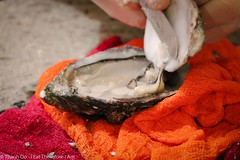
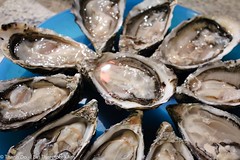
And there you have a skill that I really think is worth learning. The oysters just tastes so much nicer when freshly shucked. Add a splash of lemon and tobasco and you get food perfection.
